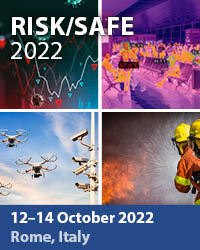Diffusion Limited Propagation Of Burning Fronts
Price
Free (open access)
Transaction
Volume
137
Pages
9
Page Range
37 - 45
Published
2010
Size
578 kb
Paper DOI
10.2495/FIVA100041
Copyright
WIT Press
Author(s)
M. Conti & U. M. B. Marconi
Abstract
In this numerical study we simulate burning propagation when the limiting transport mechanisms is the diffusion of oxygen and heat. This situation may be representative of smouldering combustion in the forest ground, when the intricate vegetation structure prevents the onset of large scale convection. The interplay between the diffusion processes results in a dynamical instability with a tendency of the burning front to develop cellular or dendritic patterns. The length scale associated with the observed patterns results to be a combination of the diffusion lengths associated with the two competing processes. Keywords: flames propagation, pattern instability. 1 Introduction Flame propagation is a complex process involving chemical reactions and transport phenomena [1]. The advancing of the combustion front is sustained by the selfproduced heat and is rate limited by the availability of both fuel and oxidant. In general, the transport phenomena in the environment where the burning front propagates involve both heat and oxygen convection. However, in the smoldering combustion of the forest ground, when the intricate vegetation structure prevents the onset of large scale convection processes, diffusion may become the rate limiting mechanism. Diffusion limited growth is the situation observed in a variety of growth phenomena such as solidification processes, viscous fingering, electrochemical deposition, diffusion limited aggregation, dielectric breakdown [2]. In such phenomena the front of the growing phase is morphologically unstable and evolves into a complex pattern, with production of fingers, grooves, sidebranches and dendritic structures. For many of these phenomena typical properties such as the velocity of the front and the length of the patterns can be related to well studied quantities such as surface tension, chemical potential differences,
Keywords
flames propagation, pattern instability





